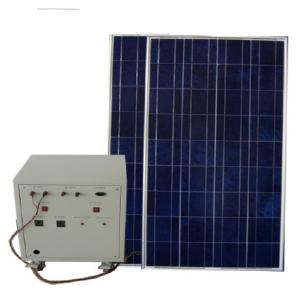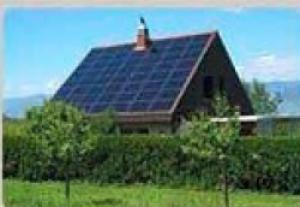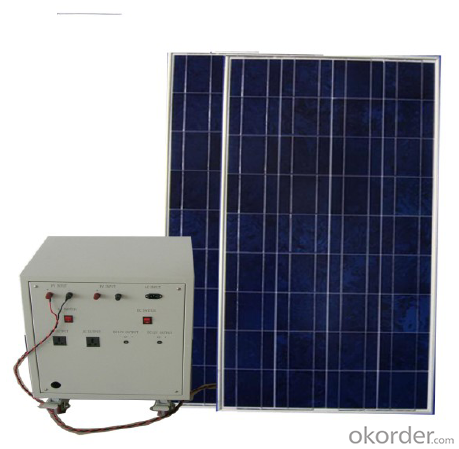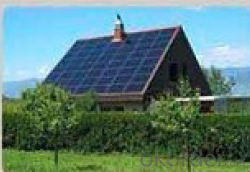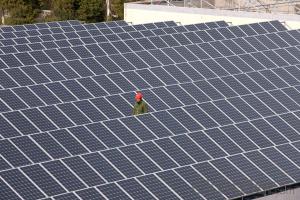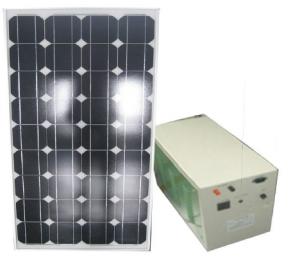CNBM Solar Home System CNBM-K3 200W with Good Price - Solar Energy Systems UK
- Loading Port:
- Shanghai
- Payment Terms:
- TT OR LC
- Min Order Qty:
- 1 pc
- Supply Capability:
- 100000000 pc/month
OKorder Service Pledge
OKorder Financial Service
You Might Also Like
Description:
CNBMSOLAR is a world-leading and Vertical integrated manufacturer of high-performance with Silicon,
Wafer, Cells, Modules, which convert sunlight into electricity for residential, commercial, and utility-scale
power generation.
The capacity of CNBMSOLAR is reach to 1GW, and make sure each year our shipment capacity is more
Than 700-800MWs, at the same time, we have set up the largest solar power station with our partner
in Ukraine.
CNBM is a Quality + Service oriented company with“Excellence at Each Step” approach, composed of
the finest components from TUV and IEC-certified partners around the world, CNBM modules consistently
undergo a variety of trials at the company’s Test & Development Centre, ensuring peak performance
capabilities. The company is committed to develop and provide the world with clean and renewable energy
to ease the energy shortages as well as human kind’s impact on the environment.
Data:
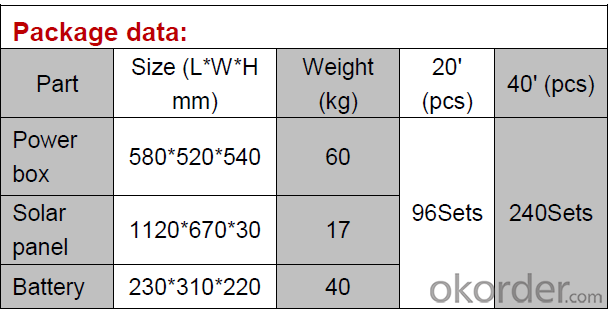
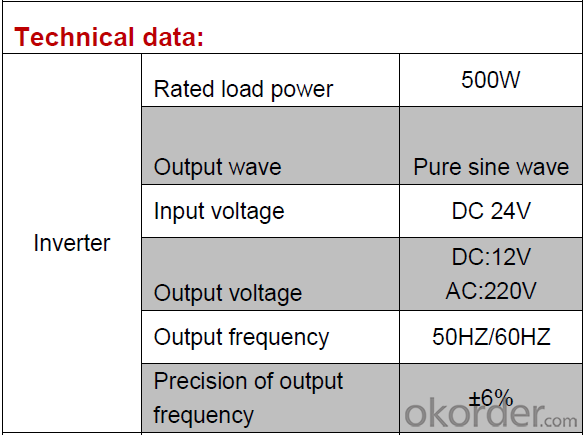
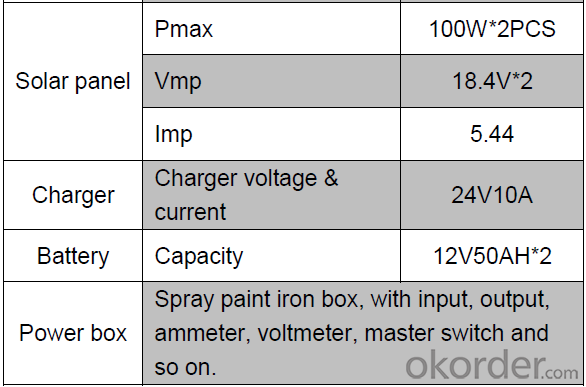
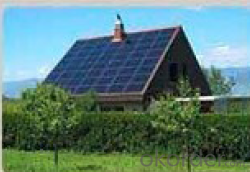
FAQ: Could you pls introduce CNBM?
CNBM Group is short for China National Building Materials Group Corporation, which is established in 1984 with approval from the State Council
CNBM Group is the largest comprehensive building materials industry group in China
The Group has a total asset of over RMB 360 billion, more than 180,000 employees and 17 subsidiaries
- Q: What is solar energy?
- Solar energy is the radiant light and heat that comes from the sun, which is harnessed and converted into usable forms of power like electricity or heat.
- Q: Can a solar energy system be installed in an area with a high lightning risk?
- Yes, a solar energy system can be installed in an area with a high lightning risk. However, proper precautions and safety measures should be taken to minimize any potential risks. Lightning protection systems can be installed to divert the electrical charge away from the solar panels, inverters, and other equipment. Grounding systems and surge protectors can also be implemented to provide additional protection. It is important to consult with a qualified professional who can assess the specific risks and design a system that meets the necessary safety standards for the area.
- Q: Can solar energy systems be used in areas with high levels of bird or wildlife activity?
- Yes, solar energy systems can be used in areas with high levels of bird or wildlife activity. While there may be concerns about potential bird or wildlife interactions, various measures can be implemented to mitigate these risks. These can include using bird-friendly designs for solar panels, such as reducing reflective surfaces or installing netting to deter birds from nesting. Additionally, strategic placement of solar panels away from crucial wildlife habitats and using proper monitoring and maintenance protocols can help ensure the coexistence of solar energy systems and wildlife activity.
- Q: What is the impact of electromagnetic interference on solar energy system performance?
- Electromagnetic interference can have a negative impact on the performance of solar energy systems. It can cause disruptions and fluctuations in the electrical signals and data transmission within the system, leading to reduced efficiency and reliability. Additionally, electromagnetic interference can interfere with the proper functioning of inverters and other critical components, potentially causing system failures and downtime. Therefore, it is crucial to implement proper shielding and mitigation measures to minimize the impact of electromagnetic interference on solar energy system performance.
- Q: Can solar energy systems be used in powering airports or transportation hubs?
- Yes, solar energy systems can be used to power airports or transportation hubs. In fact, many airports around the world are already using solar energy to offset their energy consumption and reduce their carbon footprint. Solar panels can be installed on rooftops, parking lots, or unused land at airports to generate electricity that can be used to power various operations, such as lighting, heating, cooling, and even charging electric vehicles. This helps airports become more sustainable and reduce their dependence on fossil fuels.
- Q: What are the different installation requirements for solar energy systems?
- The installation requirements for solar energy systems can vary depending on the specific type and size of the system, as well as the location and local regulations. However, there are some general installation requirements that apply to most solar energy systems. Firstly, a suitable location for the installation of solar panels is crucial. Ideally, the panels should be installed in an area that receives a significant amount of direct sunlight throughout the day. The roof of a building is a common location for solar panel installation, but ground-mounted systems are also possible. The roof or ground on which the solar panels will be installed must be structurally sound and able to support the weight of the panels. In the case of a roof-mounted system, the roof should be in good condition and able to handle the added weight and potential wind loads. If the roof requires repairs or reinforcement, these should be addressed prior to installation. In terms of orientation and tilt, the solar panels should be positioned to maximize their exposure to sunlight. In most cases, the panels should face south in the northern hemisphere or north in the southern hemisphere to receive the most sunlight. The optimal tilt angle will depend on the latitude of the installation site, and it should be adjusted accordingly. The electrical wiring and connections for the solar energy system should be properly installed and comply with local electrical codes and regulations. This includes the use of appropriate wiring, junction boxes, and disconnect switches. It is recommended to hire a licensed electrician to handle the electrical aspects of the installation. Depending on the specific system, additional components such as inverters, batteries, and charge controllers may be required. These components should be properly sized and installed according to the manufacturer's instructions and local regulations. Finally, it is important to obtain any necessary permits and approvals from local authorities before installing a solar energy system. This may include building permits, electrical permits, and inspections to ensure compliance with safety and quality standards. In summary, the installation requirements for solar energy systems involve selecting a suitable location, ensuring structural integrity, optimizing orientation and tilt, complying with electrical codes, installing additional components as needed, and obtaining necessary permits and approvals. It is recommended to work with a qualified solar installer who can provide expert guidance and ensure a safe and efficient installation.
- Q: Can solar energy systems be used for powering off-grid recreational vehicles?
- Yes, solar energy systems can indeed be used for powering off-grid recreational vehicles. Solar panels can be installed on the roof of the RV to capture sunlight and convert it into electricity. This renewable energy source can then be used to power various appliances, lights, and other electrical devices within the vehicle. It provides a reliable and environmentally friendly solution for RV owners seeking to go off-grid and reduce their dependence on traditional power sources.
- Q: How does the presence of nearby power lines affect the performance of solar panels?
- Solar panels can be affected in both positive and negative ways by the presence of nearby power lines. On the positive side, power lines can serve as a reliable backup source of electricity when solar panels are unable to generate sufficient power due to cloudy or low-light conditions. This is particularly advantageous for properties that heavily rely on solar energy and cannot tolerate any interruptions in their power supply. Conversely, the close proximity of power lines can also have detrimental effects on solar panel performance. Shading is a major concern in this case, as power lines often cast shadows on the panels, resulting in reduced overall output. Even a slight amount of shading can significantly impair the efficiency of a solar panel, disrupting the flow of photons and diminishing the amount of sunlight that can be converted into usable electricity. Moreover, placing solar panels near power lines can lead to electromagnetic interference (EMI), which can disrupt their normal functioning and impede their ability to convert sunlight into electricity. This interference can cause a decline in energy production and efficiency. It is important to acknowledge that the specific impact of nearby power lines on solar panel performance can vary depending on several factors, including the distance between the power lines and the panels, the panels' angle and orientation, and the design and quality of the panels themselves. To address these potential issues, it is advisable to carefully plan and design the installation of solar panels, taking into account the proximity of power lines. This may involve adjusting the angle and orientation of the panels to minimize shading and situating them in areas with minimal electromagnetic interference. Additionally, regular maintenance and cleaning of the solar panels can help optimize their performance, irrespective of the presence of nearby power lines.
- Q: Can solar energy systems be used in areas with limited access to transportation?
- Yes, solar energy systems can be used in areas with limited access to transportation. Solar energy systems are highly versatile and can be installed in remote locations where transportation infrastructure may be limited or non-existent. These systems can be designed to function independently of the grid, providing a reliable source of electricity for communities and individuals in remote areas. Additionally, advancements in solar technology have led to the development of smaller and more portable solar systems, making it easier to transport and install them in areas with limited access to transportation.
- Q: Are there any ongoing monitoring requirements for solar energy systems?
- Yes, there are ongoing monitoring requirements for solar energy systems. Monitoring is essential to ensure that the solar energy system is operating efficiently and effectively. It helps in identifying any potential issues or malfunctions, allowing for timely repairs or maintenance. Ongoing monitoring typically involves tracking the system's performance, including energy production, system uptime, and any deviations from expected outputs. This can be done through various monitoring tools and technologies, such as real-time monitoring software, data loggers, or remote monitoring systems. Additionally, some jurisdictions or incentive programs may have specific monitoring requirements to ensure compliance with regulations or eligibility criteria. Regular monitoring helps maximize the benefits of solar energy systems and ensures their long-term performance and durability.
Send your message to us
CNBM Solar Home System CNBM-K3 200W with Good Price - Solar Energy Systems UK
- Loading Port:
- Shanghai
- Payment Terms:
- TT OR LC
- Min Order Qty:
- 1 pc
- Supply Capability:
- 100000000 pc/month
OKorder Service Pledge
OKorder Financial Service
Similar products
Hot products
Hot Searches
Related keywords
